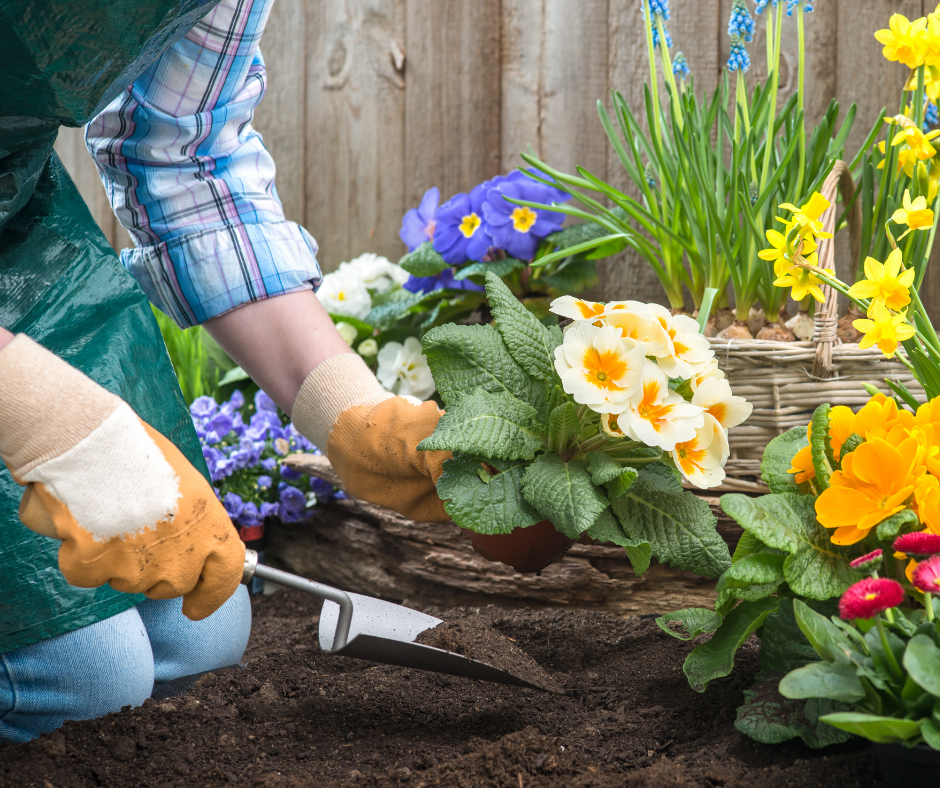
31 May Tips for Eye Safety in the Garden
As we head into the summer season, you may be excited to work on your yard or garden. However, it is important to keep your eye safety in mind as you complete your tasks. While it may seem like a very simple task, gardening can be dangerous for your eyes, with symptoms ranging from irritation to foreign body sensation and potentially serious injury. Read on to learn why you should protect your eyes, about some common gardening hazards, and how you can practice eye safety in the garden.
Be Aware of Gardening Hazards
Most eye injuries occur as a result of flying particles, and this is also true in gardening. While your eye has natural protection from airborne debris, such as your eyelashes, blinking, and tears, these cannot protect you from all hazards. This is especially true when it comes to gardening or yard work, where larger or fast-moving particles can easily bypass these natural defenses and enter the eye. Additionally, differing plant properties make it possible to irritate or injure your eyes through touch alone. Keep an eye out for these common garden hazards:
1. Poisonous Plants –Some plants have poisonous sap or other irritant properties. These could spray into your eyes when cut or could transfer from your hands to your eyes if you touch your face.
2. Plant Pollen – Similarly, plant pollen could cause eye irritation, eye redness, or other symptoms. This is especially likely if you suffer from pollen allergies.
3. Gardening Chemicals – There are many harsh and hazardous chemicals used in the garden. This can include fertilizer and weed killer, especially if left undiluted. It is important to keep eyes protected when handling chemical solutions, as they could easily splash into your eyes.
4. Sun Damage – If you are completing yard work, it is likely sunny out! UV rays can lead to eye damage and loss of eyesight. Even on cloudy days, protect your eyes!
5. Foreign Bodies – Debris could easily get into your eyes while gardening. Examples of this debris includes dirt, grass, insects, or other particles, causing irritation and foreign body sensation.
Wearing Protective Eyewear
You should always wear eye protection when you are doing any type of gardening activity, including digging, planting, pruning, or fertilizing. Your eye protection should fit properly around your eyes and be comfortable to wear without interfering with your eye function or eyesight. Protective gear should be durable, easy to clean, and stored safely to prevent deterioration. There are many types of eye protection available, including:
1. Safety Glasses – Safety glasses are available in prescription and non-prescription, making them perfect eye protection for someone who needs glasses! Safety glasses protect your eyes from debris and other particles while you work.
2. Splash Goggles – While similar to safety glasses, splash goggles are especially important if you are working with garden chemicals or poisonous plants, where harmful liquids could enter your eyes.
3. Wrap-around Sunglasses – Wrap-around sunglasses will provide UV protection from all angles, as well as impact protection – these glasses do double duty! While they are not as effective as safety glasses or goggles, they will still help prevent foreign debris from entering your eyes.
4. Face Shield – A face shield should not be your primary form of protection, but instead should be worn as a supplement to the above eye protections. It can further protect your eyes and face if you are engaging in more intense yard work, or work that requires power tools, such as chopping wood or tree pruning.
Additional Precautions
Along with wearing protective eyewear, you should ensure that you are taking additional precautions to stay safe while doing your yard work and gardening.
Always make sure that your tools are kept in good condition and properly maintained to avoid serious accidents. Further, ensure you are using each tool for the right task, as improper use can increase the risk of injury. Improper care, such as dull blades, could make a seemingly simple task dangerous.
Ensure that your workplace is well lit, with enough light to see what you are working on. While you will likely have plenty of light when you are outdoors, this is especially important if you are working in an indoor or semi-indoor space, such as a garage, workshop, or shed.
Gardening is a fun and rewarding summer activity and can provide you with home-grown vegetables and beautiful flowers all season. However, it is important that you are staying safe while gardening and protecting your eyesight as much as possible to ensure you can enjoy gardening for years to come!
If you would like more information on eye safety throughout all seasons, contact the optometrists at Dr. D’Orio Eyecare. Our eye care professionals will be able to help you keep your eyes healthy. To book an appointment today, visit https://drdorioeyecare.com/book-appointment/ or call us at 416 656 2020 for our Toronto location, or 416 661 5555 for our North York location.


